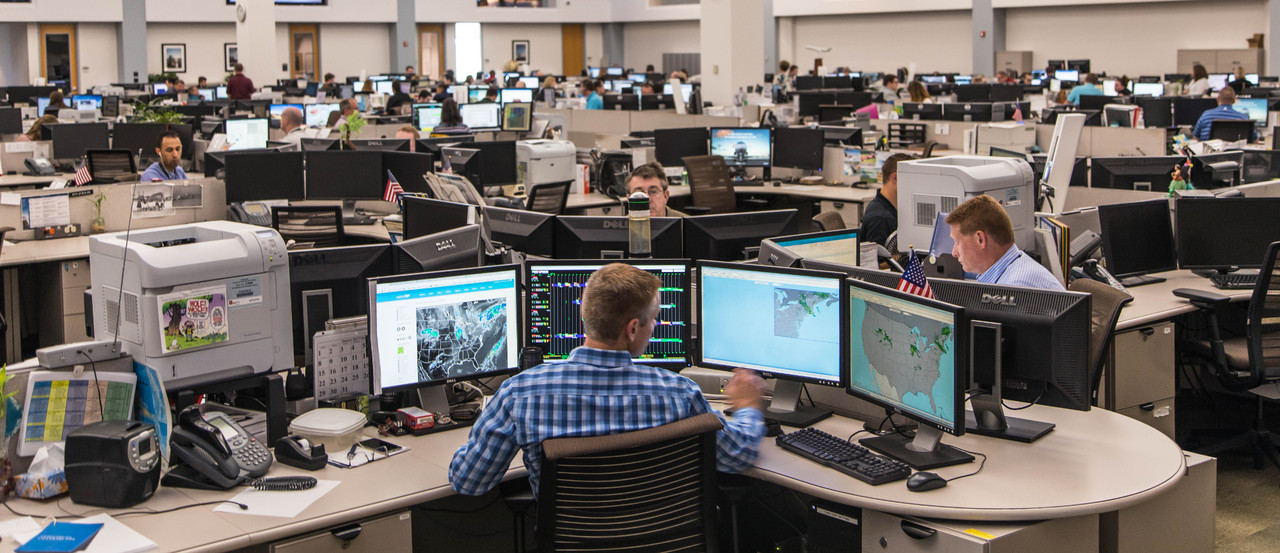
Ever wondered what keeps planes flying smoothly and on time? Flight Operations Centers (FOCs) are the heartbeat of any airline, ensuring every flight takes off, cruises, and lands safely. These centers are bustling hubs where experts monitor weather, coordinate schedules, and handle emergencies. Imagine a control room filled with screens, data, and professionals working around the clock. Without FOCs, air travel would be chaotic. They manage everything from fuel calculations to crew assignments. Flight Operations Centers are essential for maintaining the intricate ballet of global aviation. Ready to learn more? Here are 10 fascinating facts about these vital nerve centers.
Key Takeaways:
- Flight Operations Centers are the nerve centers of airlines, making sure flights run smoothly and safely 24/7. They use advanced technology and face challenges like weather disruptions and technical failures.
- Key roles in a Flight Operations Center include flight dispatchers, air traffic controllers, and meteorologists. These professionals work together to ensure safe and efficient flight operations.
What is a Flight Operations Center?
A Flight Operations Center (FOC) is the nerve center of any airline. It ensures that flights run smoothly, safely, and on time. Here are some fascinating facts about these critical hubs.
-
Centralized Control: The FOC is the centralized hub where all flight-related decisions are made. This includes flight planning, dispatch, and monitoring.
-
24/7 Operation: FOCs operate around the clock. Airlines need to manage flights at all hours, so the center never sleeps.
-
Real-Time Monitoring: Staff continuously monitor flights in real-time. They track weather conditions, air traffic, and any potential issues that could affect flight schedules.
Key Roles in a Flight Operations Center
Several key roles are essential for the smooth functioning of an FOC. Each role has specific responsibilities that contribute to the overall operation.
-
Flight Dispatcher: Flight dispatchers are responsible for planning and monitoring flights. They ensure that each flight has a safe and efficient route.
-
Air Traffic Controller: These professionals manage the safe and orderly flow of aircraft in the skies and on the ground.
-
Meteorologist: Meteorologists provide crucial weather information. They help predict and mitigate weather-related disruptions.
Technology in Flight Operations Centers
Modern FOCs rely heavily on advanced technology to manage their operations. Technology helps improve efficiency and safety.
-
Flight Management Systems: These systems help plan and monitor flights. They provide real-time data on flight status, weather, and air traffic.
-
Communication Systems: Robust communication systems are vital. They ensure constant contact between the FOC, pilots, and air traffic control.
Challenges Faced by Flight Operations Centers
Running an FOC is not without its challenges. These centers must be prepared to handle various issues that can arise.
-
Weather Disruptions: Weather can be unpredictable and disruptive. FOCs must constantly monitor weather patterns and adjust flight plans accordingly.
-
Technical Failures: Technical issues can occur at any time. FOCs need contingency plans to handle these situations swiftly and efficiently.
The Heartbeat of Aviation
Flight Operations Centers (FOCs) are the unsung heroes of aviation. These hubs ensure every flight runs smoothly, from takeoff to landing. They monitor weather conditions, manage flight plans, and coordinate with air traffic control. Without FOCs, the skies would be chaotic.
FOCs also handle emergencies, rerouting flights when necessary and keeping passengers safe. They work around the clock, staffed by experts who know the ins and outs of aviation. Their role is crucial, yet often goes unnoticed by the public.
Understanding the importance of FOCs gives us a deeper appreciation for the complexity of air travel. Next time you board a plane, remember the dedicated teams working behind the scenes. Their efforts make flying one of the safest modes of transportation. So, here's to the Flight Operations Centers, the true heartbeat of aviation.
Frequently Asked Questions
Was this page helpful?
Our commitment to delivering trustworthy and engaging content is at the heart of what we do. Each fact on our site is contributed by real users like you, bringing a wealth of diverse insights and information. To ensure the highest standards of accuracy and reliability, our dedicated editors meticulously review each submission. This process guarantees that the facts we share are not only fascinating but also credible. Trust in our commitment to quality and authenticity as you explore and learn with us.


